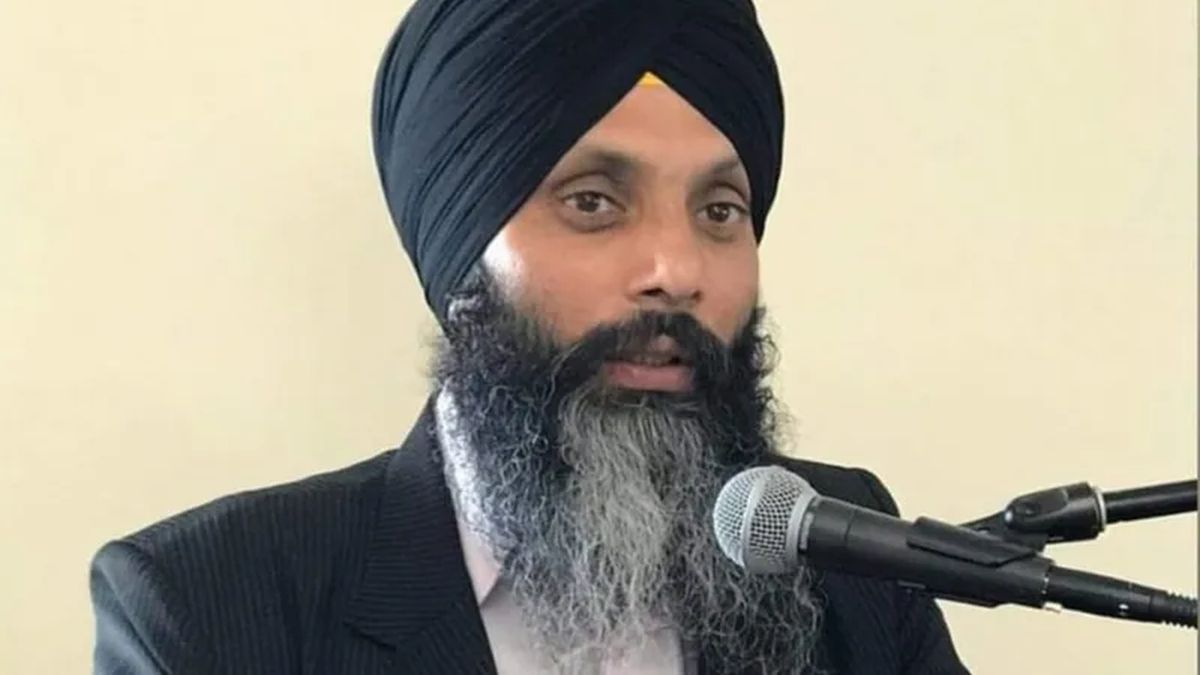Ties between India and Canada are, perhaps, at their lowest as both countries expelled each other’s top diplomats and traded harsh statements.
On Monday, Ottawa said it had identified India’s top diplomat as a person of interest in an assassination plot and expelled him and five others. And in a tit-for-tat action, New Delhi expelled Canada’s acting high commissioner and five other diplomats. It also called Justin Trudeau’s claims “preposterous” and a part of the Trudeau government’s agenda, which is “centred around vote bank politics”.
But at the heart of these deteriorating ties between India and Canada is the killing of Hardeep Singh Nijjar in June 2023 near his home in Vancouver.
We take a closer look at who he was and how he was killed.
A plumber and a Khalistani
Hardeep Singh Nijjar was born in 1977 in India’s state of Punjab, he grew up amid a violent insurgency, which came to an end in the 1990s. In 1997, when he was in his 20s, he moved to Canada, with the Khalistan Extremism Monitor of the New Delhi-based independent Institute for Conflict Management reporting that he worked as a plumber. At the time, he had claimed he’d been beaten and tortured by the Indian police. However, his refugee application was denied in 1998.
He later acquired Canadian citizenship by marrying a Canadian woman, who sponsored him to immigrate. In the following years, he owned a plumbing business and served as president of a Sikh temple or gurdwara in suburban Vancouver.
The National Investigation Agency (NIA) notes that Nijjar was initially associated with the Babbar Khalsa International (BKI), a Sikh separatist group that is listed as a “terrorist organisation”. In 2020, the government of India then announced that Nijjar had become the chief of the Khalistan Tiger Force (KTF) group and was “actively involved in operationalising, networking, training and financing” its members.
He was also linked to Sikhs for Justice, a pro-Khalistan group banned in India, and even went to Australia for a Khalistan referendum voting demanding a separate Punjab. He played a key role in organising a similar vote in Brampton, a city in Canada.
Jatinder Singh Grewal, an organiser with Sikhs for Justice, was quoted as telling The National Post that Nijjar was a pillar in their community. “Hardeep Singh Nijjar was a role model, a prominent personality in the community and for the advocacy of a separate Sikh state of Khalistan through a democratic process of referendum.”
A terrorist for India
Nijjar, as per Indian authorities engaged in several terror activities against India. In 2007, he was alleged to have been involved in a 2007 cinema bombing that killed six people and injured 42 others in the city of Ludhiana in Punjab.
When Canadian Prime Minister Justin Trudeau visited India in February 2018, he was handed a list of criminals by then-Punjab Chief Minister Captain Amarinder Singh, which included Nijjar’s name. The terrorist was arrested by Canadian authorities in April 2018 but was released without any charges being filed.
In 2018, the National Investigation Agency (NIA) registered a case against Nijjar, accusing him of sedition, promoting enmity between different religious groups, and criminal conspiracy, among others. According to the NIA, he posted objectionable content on social media to spread “insurrectionary imputations” through hateful speeches.
He had also been accused of running terrorist training camps in British Columbia for supporters ready to carry out attacks in India.
In 2020, he was declared a terrorist by India and a reward of Rs 10 lakh was announced for information leading to his arrest.
Nijjar’s murder outside a temple
On June 18, 2023, Nijjar, who was leaving the parking lot of the Sikh temple where he served as president in British Columbia, was shot dead by two masked gunmen.
Eyewitnesses at the site recounted seeing the bullets flying at Nijjar’s grey pickup truck. Some said that they first thought they had heard fireworks, before realising it was the sound of bullets. A few people at the scene tried to chase the gunmen, but they sped off in a car that had been waiting for them.
The Canadian Police announced that Nijjar had died at the scene.
The India-Canada fallout
Months after Nijjar was killed, in September, Canadian Prime Minister Justin Trudeau speaking in parliament said there were credible allegations that India’s government had links to the killing. Following his remarks, Canada expelled an Indian diplomat.
India denied the allegations at the time, calling them “absurd”, and ordered the expulsion of a Canadian envoy. New Delhi also froze consular services for Canadians for nearly two months.
Tensions boiled over again this May, when Canadian police said they had arrested three Indian nationals accused of involvement in Nijjar’s killing and were “investigating if there are any ties to the government of India.” India rejected the allegations, saying Canada had a “political compulsion” to blame India. A month later, anger erupted as Canada’s House of Commons observed a ‘moment of silence’ for Hardeep Singh Nijjar.
With inputs from AFP
)